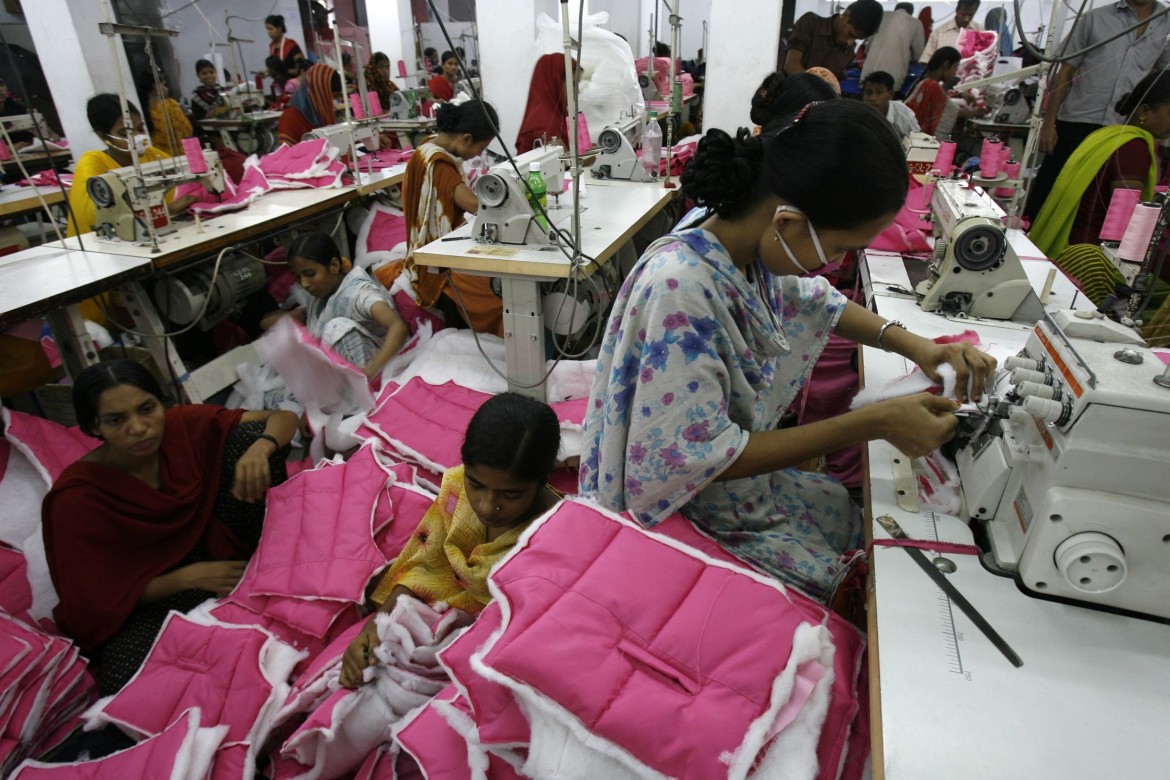Analysis
Oxfam report exposes widening inequality and the slavery it creates
As neoliberalism stretches societies to the breaking point, endlessly expanding the privileges of the few—indeed, the very few—and impoverishing the others, it poisons the roots of the conditions for the existence of democracy.

The latest Oxfam report on the state of our global society landed with a thud before the masters in Davos. It says that 1 percent of the world population controls a wealth equal to that of the remaining 99 percent.
This is the headline the media are carrying, but there’s even more in the report. It says, for instance, that between March 2016 and March 2017, that tiny group of the hyper-privileged (no more than a few thousand “alpha males,” since less than one in 10 are women) has acquired 86 percent of the new wealth produced, while 3.7 billion men, women and children who make up 50 percent of earth’s inhabitants did not receive even a penny from it (a fact that flies in the face of the infamous “trickle down theory”).
The report also says that last year saw the largest increase yet in the number of billionaires (roughly one more added every other day), and their wealth increased in absolute terms, to $762 billion—a figure that, if it was redistributed, would be enough to end extreme poverty worldwide, not once but seven times over.
Most importantly, the report shows that this monstrous accumulation of wealth rests on the labor—poorly-paid, devalued and robbed of dignity—of billions of men and (especially) women, and even children. This money is indeed “the devil’s dung.”
The report does not merely point this out using dry statistics, but it also compares the lives of some of the protagonists. For example, it looks at Amancio Ortega (fourth in the ranking of the richest in the world), the owner of Zara, with profits amounting to $1.3 billion per year, and contrasts him with Anju, who sews clothes for Ortega in Bangladesh, working 12 hours per day for $900 per year (thus earning almost 1.5 million times less than Ortega), and who often has to skip meals.
This is the main strength of this year’s Oxfam report: It does more than just examine how the world looks “at the top,” describing the bright and shining life of the wealthy; it also sounds the depths which are found “at the bottom.” It reveals the dark and miserable condition of the working world, where one in three people is among the “working poor,” employed but in poverty.
The working poor are especially female. Around 40 million are working in “a condition of slavery” or “forced labor.” According to an International Labour Organization report released last year, “forced laborers produced some of the food we eat and the clothes we wear, and they have cleaned the buildings in which many of us live or work.”
Thus, the global economic system, molded on the tenets of neoliberalism—the only ideological dogma that has managed to survive—shows itself to be just like the enormous global machine (already described with perfect accuracy by Luciano Gallino in his time) that, while accumulating an inhuman concentration of wealth at one pole, produces social disintegration and political devastation at the other pole (i.e. life as consumption and democracy as consumption).
As it stretches societies to the breaking point, endlessly expanding the privileges of the few—indeed, the very few—and impoverishing the others, it poisons the roots of the conditions for the existence of democracy. It renders its very basis hollow, by erasing the fundamental mechanism of citizenship itself: from the “democratic” societies that we had managed to become (an incomplete, partial and deficient democracy, but at least based on some semblance of equality) we are regressing back to servile societies, where an absolute distance is maintained between Master and Servant, and where a relationship of free participation is replaced by one of fealty and protection. Or, conversely, by a relationship of alienation, anger and revenge: This is precisely the context in which the populist solution and that based on passivity are intertwining and reinforcing each other as the current forms of politics in our asocial era.
As a matter of fact, none of the measures that the report proposes can be found on the agenda of any government anywhere in the world, no matter the political shade or the continent (we mean here their true agenda, not what they put forward as window dressing). No one is discussing the massive taxation of enormous fortunes so as to reduce the wealth gap (in fact, the “flat taxes” that are fashionable at the moment are the very opposite of this), nor the reduction of salaries of the top executives to a level of (at least) no more than 20 times the salaries of other employees, let alone the promotion of collective representation for workers, or the reduction of job insecurity.
Of course, we do find, in the shadowy realm of government policy, formal concerns, declarations of intent or awareness, promises and sweet words, which are all blatantly contradicted by reality every single time. Oxfam points to the World Bank and the International Monetary Fund as examples: While denouncing the dangers of wage dumping and tax evasion, they are singing the praises of tax evaders and downsizers at the same time. And, naturally, another example offered is Donald Trump, who, while feigning sympathy for blue collar workers, filled his own administration with multibillionaires and bankers.
This is to say that hypocrisy has become the current form of our post-democracy. And no Left that wants to regroup as a political force can avoid dealing with it head-on.
Originally published at https://ilmanifesto.it/la-grande-diseguaglianza-della-societa-servile/ on 2018-01-23
